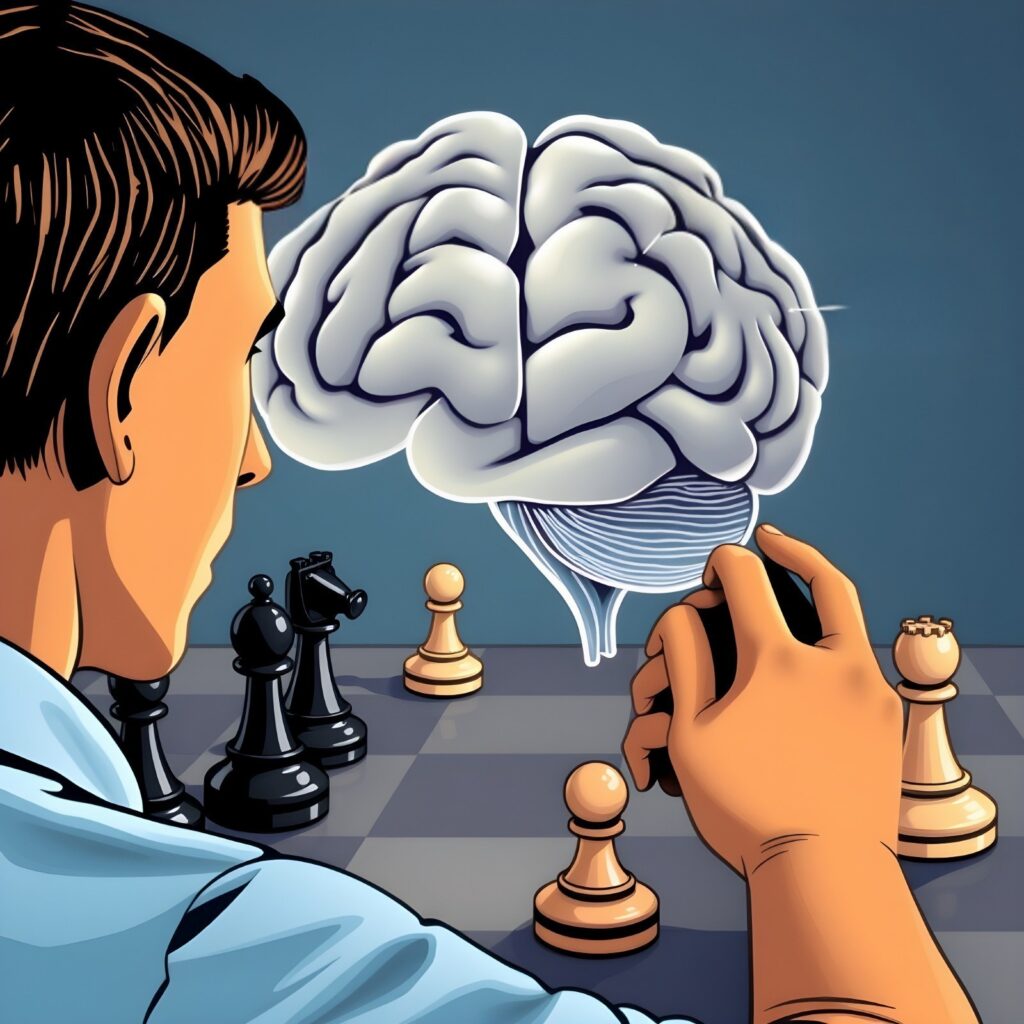How Chess Impacts IQ, Cognitive Skills, and Life Success

Introduction
Chess, a game of strategy and intellect, has fascinated humanity for centuries. Have you ever wondered why some chess players seem to think ten steps ahead, predicting moves with uncanny precision? Is it just practice, or does chess actually make you smarter? The connection between chess and IQ has sparked debates and studies for decades. Can this ancient game really sharpen your brain, or is it simply a game of strategy? But is it more than just a board game? Can it boost your IQ and enhance cognitive abilities? Let’s explore the intricate relationship between chess and intelligence through its history, benefits, and practical applications.
The History of Chess and Its Impact on Intelligence
Chess originated over 1,500 years ago, evolving from the ancient Indian game of Chaturanga. Throughout history, chess has been a symbol of intelligence, strategy, and mental discipline. It flourished in medieval Europe as a training tool for military tactics and later became a global intellectual sport. This historical legacy links chess to the development of analytical and strategic thinking, making it a timeless mental workout.

The scatterplot shows the relationship between IQ scores and chess Elo rankings. Each point represents an individual, plotted with their IQ on one axis and Elo rating on the other. The dashed line marks a 2000 Elo rating, a significant milestone in chess skill, while the dotted line indicates 2200, typically the level of an expert.
Mental Effects of Playing Chess
1) Cognitive Effects
Chess is a unique game that requires players to use both logic and creativity, engaging both the left and right hemispheres of the brain. The left hemisphere is responsible for logical and analytical tasks, such as planning moves and calculating risks, while the right hemisphere oversees creative and intuitive thinking, such as anticipating an opponent’s strategies. This balanced brain activity promotes overall cognitive development and mental agility. Studies have shown that regular chess players often exhibit enhanced cognitive abilities, including better problem-solving, logical reasoning, and decision-making skills. The mental gymnastics of chess can potentially lead to improved IQ scores over time.
A 2022 study published in Children examined 67 third-grade students who practiced chess weekly. The research found a significant improvement in both intelligence and body schema, suggesting that chess practice can enhance cognitive abilities in children.
2) Problem Solving Skills
Every chess move is a mini-problem requiring an optimal solution. Players analyze multiple scenarios, anticipate opponents’ responses, and adapt their strategies dynamically. This continual problem-solving sharpens critical thinking and teaches players to approach challenges methodically—skills transferable to real-world situations.
3) Memory Improvement
Chess demands remembering complex game positions, patterns, and strategies. Players develop both short-term and long-term memory skills as they recall previous games or calculate moves ahead. Research indicates that chess can significantly enhance memory retention, particularly for visual and spatial information.
4) Concentration
A single chess game can last hours, demanding sustained attention and focus. Chess trains players to tune out distractions and concentrate fully on their goals. This heightened level of focus can translate into improved productivity and mindfulness in other areas of life.
There are some real life cases who felt an improvement in their thinking when they started playing chess. People tend to experience various cognitive benefits, including improvements in critical thinking, problem-solving, and memory. Several renowned personalities credit chess for their intellectual growth. For instance, tech entrepreneur Elon Musk has mentioned playing chess during his childhood, which helped him develop strategic thinking. Similarly, Magnus Carlsen, the world chess champion, showcases how consistent practice and passion for the game can lead to unparalleled success. Such examples underscore the transformative potential of chess.
Real Truth behind Chess and Intelligence
While many studies support the cognitive benefits of chess, some researchers argue that these improvements may stem from increased practice and exposure to challenging mental tasks rather than the game itself. Critics point out that correlation does not necessarily imply causation. However, even skeptics agree that chess fosters valuable skills such as focus, discipline, and resilience, which contribute indirectly to intellectual growth. Although there are studies that correlate chess with intelligence but if we think practically do all the persons who play chess have an increase IQ or will they be successful in life?
Chess often carries the reputation of being a “game for geniuses,” sparking the belief that every chess player must be highly intelligent. However, intelligence is a multifaceted concept, and excelling at chess doesn’t automatically translate to success in other areas of life.
The idea of intelligence being a singular attribute is outdated. Modern psychology recognizes multiple types of intelligence:
- Logical-Mathematical Intelligence: Aptitude for reasoning and problem-solving.
- Bodily-Kinesthetic Intelligence: Talent in physical activities like sports or dance.
- Interpersonal Intelligence: Skills in communication and understanding others.
- Musical Intelligence: Sensitivity to sound patterns and rhythm.
A chess player may excel in logical reasoning but lack interpersonal skills or physical coordination. Similarly, someone adept at sports or business might not perform well in chess but is undeniably intelligent in their domain.
There’s no denying that chess improves concentration. Players learn to focus on the board for extended periods, filtering out distractions. This mental discipline can be helpful in studies or professional work.
However, concentration alone doesn’t guarantee excellence in other fields. For example:
- A good chess player may struggle in public speaking if they lack confidence or communication skills.
- Success in sports demands physical fitness and quick reflexes, which chess doesn’t train.
- Excelling in business requires risk-taking, leadership, and networking, skills that chess doesn’t inherently develop.
Now see this chess puzzle and try to solve. According to me if you are able to solve this puzzle then at some point in life you must have played chess because if you bring a newbie, who has just started in chess then it will be impossible for him to solve in chess no matter how much intelligent that person is or how much that person has achieved in its life. So its all about practicing a particuar thing and getting better at it.
Solution-R*Ba6 b*a6, Nc6+ or R*Ba6 Rf4, Qb6
Conclusion
Chess hones a specific set of skills, but its benefits are not universal or automatic. Being good at chess doesn’t mean someone will excel in studies, sports, or every other area, nor does it mean they’ll easily grasp everything. Success in chess often comes down to consistent practice. Similarly, someone who has spent 10 years practicing and mastering business will excel in business, even if they aren’t good at chess. Skills in one area don’t automatically translate to expertise in another.
If you enjoy playing chess, you should absolutely continue because it’s a fantastic game that exercises both sides of your brain—the logical side for analyzing moves and the creative side for imagining strategies. However, it’s important to keep realistic expectations. While chess can improve your problem-solving skills, memory, and focus, it won’t automatically make you a super-intelligent person. Intelligence is complex and involves many factors beyond just playing chess. So, play for the joy of the game and the mental benefits it offers, not because of unrealistic expectations.